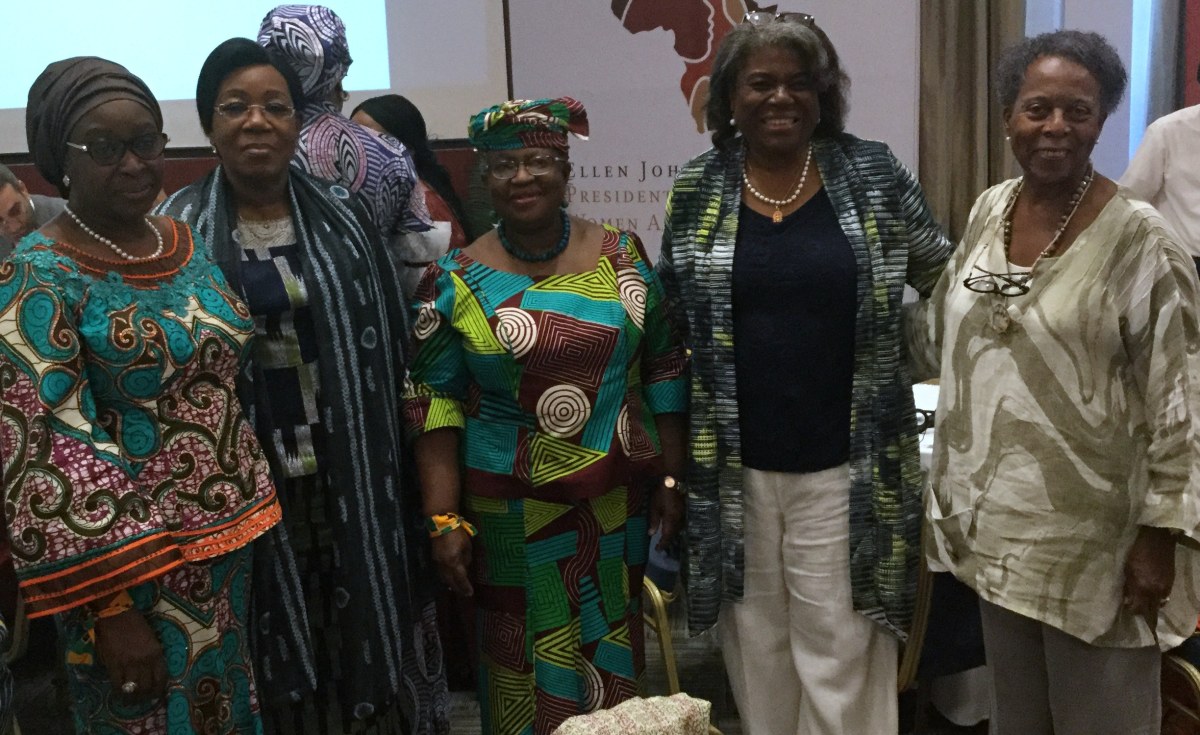
On March 8, in the midst of the global Coronavirus crisis, former Liberian President Ellen Johnson Sirleaf offered a bright, glittering antidote to the fear and uncertainty of Covid-19 with the International Women’s Day (IWD) launch of the Ellen Johnson Sirleaf Presidential Center on Women and Development.
The Monrovia-based center aims to advance women’s public leadership in Africa with an emphasis on political participation.
The launch was not a moment too soon for Angela O., still haunted by the memory of going to bed elated that she had won her primary but waking up to read in the newspaper that her party had named her opponent as its election standard bearer. Or for Catherine W., named one of the ten best finance ministers in Africa, but summarily dismissed from the cabinet for opposing corruption and having the audacity to argue with her president for needed reforms.
As the first and only democratically elected female African president, “President Ellen” remains an iconic role model and inspiration to countless women across the continent. And she hasn’t let them down. She is using her 2017 Mo Ibrahim Democracy Award of $500,000 a year for ten years and an additional $200,000 per year for public interest projects for up to ten years, to methodically develop a plan for a Liberia-based center with a mission to promote African women’s leadership in the public arena, especially in politics.
The Center’s first project, Amujae (a Kru word meaning moving up together), brings together 15 up-and-coming women leaders from across the continent–Anglophone, Francophone and Lusaphone– for a long weekend three times a year to meet with senior leaders and veteran women politicians to give the younger women new skills and deeper insights into the complex role of a female leader.
To underscore the gravity and urgency of the Center’s mission Ellen invited former Malawi President Joyce Banda and former Central African Republic President Catherine Samba-Panza to join her for the workshop and launch.
The workshop’s carefully curated curriculum was a rich mix of practical sessions and intimate meetings with the women presidents. In one session on women and the media participants learned that the mere mention of what the candidate wore dropped her polling numbers by six to eight percent. What to do!!
Listen to and learn from your elders: The highlight of the weekend was the full participation of the three women presidents. Each of them had been harassed, jailed and/or violently attacked. Yet each has summoned the courage to face the unimaginable vitriol and ultimately prevail to manage complex post-conflict recoveries, govern democratically and advance their countries’ economies. Their willingness to spend hours with the younger women, patiently answer their questions and offer advice grounded in gritty experience gave the younger women concrete take-aways. As a bonus, the younger women learned the power of storytelling and the importance of controlling their own narratives.
To launch the Center on international Women’s Day, Ellen invited African leaders from across the continent, including Bineta Diop, AU Special Envoy for Women, Peace and Security; Finda E.M. Koroma, the (first female) vice president of ECOWAS; K.Y. Amoako, president and CEO of ACET, Africa’s premier economic think tank; Antoinette Sayeh, the Liberian economist and former Minister of Finance, who has just been named Deputy Managing Director of the IMF; and countless other high profile African dignitaries.
The three former women presidents were joined by former Nigerian President Olusegun Obasanjo, Liberian President George Weah and other senior Liberian officials including former Liberian President Amos Sawyer and Senator Nyonblee Karnga-Lawrence, the only female Senator in the Legislature.
Former President Obasanjo spoke for the entire assemblage when he noted that Ellen had raised the bar for other African presidents’ post-office achievements. Equally important, she inaugurated and ensured a stellar pipeline of accomplished, confident women ready for senior leadership for decades to come.
The second important component of the EJS Center is its archives, an ongoing effort to collect and preserve Ellen’s papers. In an era that demands documentation, the archives will encourage female literacy as well as comprise a permanent record of her legacy. The Ellen Johnson Sirleaf Presidential Foundation, a U.S.-based complement to the EJS Center, has been established to support the archives.
The IWD launch of the Ellen Johnson Sirleaf Center for Women and Development was a watershed for Africa, especially its women. When Angela, Catherine and their 13 counterparts departed Liberia, they left armed with a personal development plan, new strategies for enhanced political participation, a tensile network of likeminded women activists and a confidence that only caring former female presidents could bestow on their potential successors.
The weekend stretched and strengthened the 15 women participants in ways that not even the Coronavirus could tarnish, for the EJS Center is a gift that will keep on giving, continuously nurturing women leaders and enriching the continent.
Vivian Lowery Derryck is Founder and President Emerita of The Bridges Institute – Strengthening African Democracy through Global Partnerships. She previously served as Assistant Administrator for Africa of the U.S. Agency for International Development, Deputy Assistant Secretary at the U.S. Department of State, Executive Vice President of the National Council of Negro Women, Vice President of the National Democratic Institute for International Affairs, and President of the African-American Institute.
